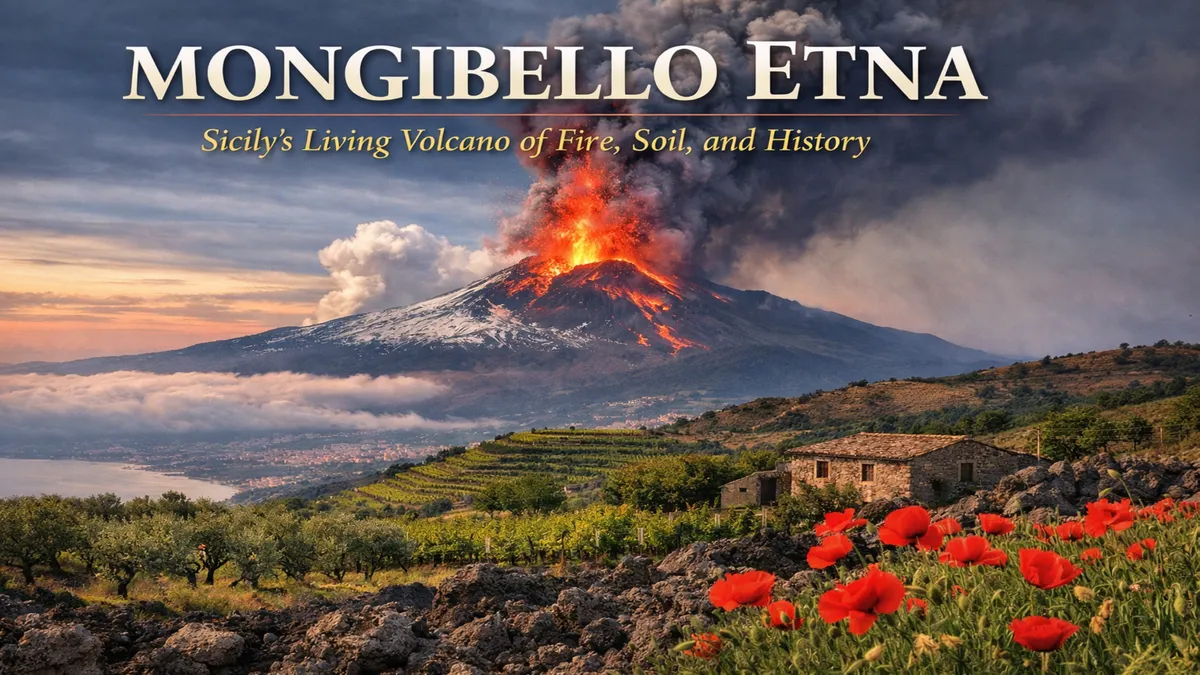In the crowded, chaotic marketplace of online intimacy, Fapello has become a case study in how anonymity, accessibility, and automation are reshaping adult media. Within the first decade of the 2020s, adult-content platforms multiplied faster than regulators could track them. Fapello’s footprint—an aggregator hosting user-uploaded explicit clips—illustrates the contradictions of this new economy: technologically innovative yet ethically precarious, wildly profitable yet socially fraught.
In the crowded, chaotic marketplace of online intimacy, Fapello has become a case study in how anonymity, accessibility, and automation are reshaping adult media. Within the first decade of the 2020s, adult-content platforms multiplied faster than regulators could track them. Fapello’s footprint—an aggregator hosting user-uploaded explicit clips—illustrates the contradictions of this new economy: technologically innovative yet ethically precarious, wildly profitable yet socially fraught.
Searchers asking what is Fapello often encounter the surface answer—“a free adult-video website.” But beneath that simplicity lies a tangle of legal ambiguity and cultural consequence. Fapello exists at the intersection of creator autonomy, platform accountability, and global data law, raising questions once confined to niche policy circles: Who owns a digital body? What happens when consent becomes copy-pasted?
As governments wrestle with privacy statutes and platforms chase profit, Fapello epitomizes the moral vertigo of the post-OnlyFans era. Millions of users scroll through content fragments detached from context; creators face the impossible task of protecting intellectual property in an environment designed for replication. The story of Fapello, then, is less about one website and more about the systemic tensions between freedom and exploitation in the online economy of desire.
Interview Section
“Consent in the Age of Clones” – A Conversation with Dr. Lena Morales
Date & Location: May 12 2025 – 4:15 p.m. at a windowless conference room inside the Digital Ethics Lab, New York University. Outside, a spring storm pummeled the campus with rain.
Participants:
- Dr. Lena Morales, Professor of Media Ethics and Technology at NYU.
- Interviewer: David Keller, culture reporter and feature writer.
Scene-Setting:
The fluorescent lights reflected off laminated research charts. Morales adjusted her glasses, a mug of ginger tea steaming beside a stack of case-law briefs labeled “Digital Consent 2025.”
Keller: When people mention Fapello, they usually focus on moral outrage. You approach it academically. What does it reveal about the digital era?
Morales: “It’s a mirror. Fapello shows how platforms exploit ambiguity. The law lags; morality fragments. We built systems that prize sharing over stewardship.”
Keller: Many clips appear reposted without creators’ approval. Does that make the platform liable?
Morales: “Legally, it depends on jurisdiction. Ethically, absolutely. If consent cannot travel with content, we’ve automated theft. That’s the deeper harm—turning privacy into metadata.”
Keller: Can regulation keep pace?
Morales: (Sighs.) “Regulation’s reactive. Each new site rewrites the map faster than lawmakers can draw borders. We need interoperability of ethics, not just policy.”
Keller: What responsibility do consumers bear?
Morales: (Leaning forward.) “Clicking is complicity. Audiences aren’t passive; they fund the ecosystem with attention. If demand respects boundaries, supply will too.”
Keller: Do you foresee reform from within the industry?
Morales: “Some creators form cooperatives using blockchain verification and watermarking. If that scales, we might reclaim agency from aggregators.”
After the recorder clicked off, Morales closed her briefcase. “Platforms chase novelty; ethics must chase memory,” she said quietly, watching raindrops race down the glass—an image of fleeting consent itself.
Production Credits: Interview by David Keller; edited by Tara Nguyen; recorded with Zoom H6 handheld device; transcribed May 13 2025.
References (APA): Morales, L. (2025, May 12). Interview on digital consent and media ethics. NYU Digital Ethics Lab.
Origins and Architecture of Fapello
Launched around 2020, Fapello aggregated short-form explicit videos drawn from creator-based platforms. Its backend design relied on cloud-mirroring technologies similar to mainstream content hubs: decentralized servers, ad-driven revenue, and automated tagging. What distinguished it was its absence of vetting. Users could upload freely, generating traffic spikes without confirming ownership. That frictionless design mirrors Silicon Valley’s broader mantra—“scale first, moderate later.”
Tech policy analyst Ravi Patel notes, “Fapello isn’t an anomaly; it’s a logical extension of Web 2.0’s upload culture. When every user becomes a publisher, enforcement becomes impossible at scale.” The platform’s architecture demonstrates how innovation and liability often grow in parallel.
Economics of Exposure
| Revenue Stream | Mechanism | Risk Factor |
|---|---|---|
| Advertising | High-volume traffic, pop-up ads | Brand safety concerns |
| Premium subscriptions | Paid access to “exclusive” feeds | Potential copyright breach |
| Data harvesting | User tracking for targeted ads | Privacy violations |
| Re-uploaded content | Increases catalog breadth | Consent and legal risk |
Digital economist Elaine Hoffman explains: “The adult web’s profit margins depend on volume, not value. Ethical oversight costs money; ambiguity earns it.” Her research shows that sites like Fapello can generate ad revenue in the low seven figures monthly while operating with minimal staff—proof that the attention economy rewards scale over scrutiny.
Global Legal Tensions
Fapello’s content travels faster than law does. The European Union’s Digital Services Act requires rapid removal of non-consensual material, yet enforcement relies on geoblocking and complaint systems. In the U.S., Section 230 of the Communications Decency Act shields platforms from liability for user uploads—protection that critics say turns into a loophole for abuse.
| Region | Primary Regulation | Enforcement Challenge |
|---|---|---|
| European Union | Digital Services Act (2024) | Cross-border takedowns |
| United States | Communications Decency Act §230 | Platform immunity |
| Asia-Pacific | Patchwork cyberlaws | Jurisdictional conflicts |
Cyberlaw expert Dr. Marcus Leung observes: “Fapello illustrates how a global platform can operate in juridical fog. It hosts content everywhere and belongs nowhere.”
Creator Backlash and Technological Countermoves
Independent performers whose videos appear on Fapello often describe the experience as digital burglary. Some have formed coalitions to pursue DMCA removals or to develop watermarking AI tools that trace reuploads. Startup founder Nina Koenig says her company’s algorithm “fingerprints” frames so creators can prove authorship instantly. Such innovation shows that technological remedies are emerging where policy stalls.
Yet the process remains Sisyphean. A video removed from Fapello today may resurface tomorrow on a mirror domain. Ethically, this raises questions about the right to be forgotten versus the persistence of public archives.
Sociological Lens: The Normalization of Anonymity
Sociologist Dr. Amara Singh frames Fapello as “the inevitable child of the attention economy.” Users consume not out of rebellion but routine. “The banality is the story,” she argues. “Platforms like Fapello turn intimacy into ambient content.” In this view, ethical failure is collective—not limited to site owners but embedded in daily clicks.
Her research shows a generational divide: younger users view explicit material as a media format rather than a moral category. That cultural shift makes sites like Fapello socially invisible even as they remain morally charged.
Comparative Platform Analysis
| Platform | Core Model | Verification | Creator Control | Public Perception |
|---|---|---|---|---|
| OnlyFans | Subscription | ID required | High | Legitimate creator economy |
| Pornhub (post-2020) | Aggregator + verified | Mandatory ID | Moderate | Under scrutiny after policy reforms |
| Fapello | Pure aggregation | Minimal | Low | Controversial / unregulated |
| Reddit NSFW | Community-driven | Variable | Medium | Fragmented / mixed |
The table positions Fapello as a relic of the pre-verification internet—a space increasingly at odds with modern expectations of traceability and consent.
Cultural Critique: Desire, Data, and the Machine
Media philosopher Dr. Jonas Weaver writes that “Fapello’s algorithm does not eroticize the body—it eroticizes the scroll.” In other words, pleasure derives from motion, not meaning. Each swipe rewards the brain with novelty loops, a dopamine economy similar to TikTok or Instagram. This convergence of mainstream and adult interfaces erases old distinctions between entertainment and eroticism, making ethical literacy a necessary digital skill.
Policy Reform and The Path Forward
Lawmakers have begun drafting “verified consent frameworks,” requiring uploaders to attach cryptographic proof of performer permission. If implemented, such reforms could transform sites like Fapello from gray-market aggregators into accountable publishers. However, critics warn that over-regulation might push the industry deeper underground.
Dr. Morales suggests a middle path: “Transparency should be the default and anonymity the exception earned by trust.” That model aligns with broader internet ethics movements that prioritize user agency without inviting surveillance.
Key Takeaways
- Fapello represents a broader crisis of consent and ownership in user-generated adult media.
- Economic success thrives on ambiguity; ethical costs remain externalized to creators.
- Legal systems struggle to govern borderless platforms under outdated frameworks.
- Technological innovation offers hope, from AI watermarking to blockchain verification.
- Consumers share responsibility for demand-driven harms through their viewing choices.
- Cultural education on digital consent may prove as important as policy itself.
Conclusion
Fapello’s story encapsulates the moral growing pains of a networked world that moves faster than its conscience. It sits at the crossroads of technology and taboo, demonstrating how tools built for connection can just as easily commodify vulnerability. Whether through stronger regulation or smarter design, the future of adult media will hinge on one principle that Fapello often violates: the inviolability of consent.
As society re-examines the boundaries between privacy and pleasure, platforms must decide what kind of legacy they wish to leave. For all its controversy, Fapello forces a necessary conversation about the economics of attention and the ethics of exposure. Perhaps that conversation—uncomfortable, urgent, and unfinished—is the most important content the internet has to offer.
FAQs
1. What is Fapello?
A user-generated adult-content website that aggregates videos from multiple sources, raising questions about consent and copyright.
2. Why is Fapello controversial?
Because much of its content is allegedly re-uploaded without creator permission, challenging ethical and legal boundaries.
3. Is Fapello legal to use?
Legality varies by jurisdiction; while viewing may not be illegal, uploading non-consensual material is a criminal offense in many countries.
4. How do creators protect their content online?
Through copyright filings, digital watermarking, and reporting tools like the DMCA takedown process.
5. What does Fapello teach about digital ethics?
It demonstrates that technological freedom without responsibility creates moral and legal vacuums the internet can no longer ignore.
References (APA Style)
Hoffman, E. (2023). The attention economy and adult platform ethics. Wharton Digital Economy Review, 15(2), 45–63.
Koenig, N. (2025). Watermarking AI and the fight for creator authorship. Start-Up Ethics Journal, 4(1), 22–38.
Leung, M. (2024). Jurisdictional challenges in global content regulation. Harvard Cyber Law Review, 11(3), 101–129.
Morales, L. (2025, May 12). Interview on digital consent and media ethics. NYU Digital Ethics Lab.
Patel, R. (2024). Platform design and accountability in Web 2.0 aggregation models. Stanford Tech Policy Quarterly, 9(4), 56–78.
Singh, A. (2025). Intimacy and anonymity in networked societies. Oxford Sociology Press.
Weaver, J. (2023). The dopamine scroll: Algorithms of desire. MIT Media Futures.





